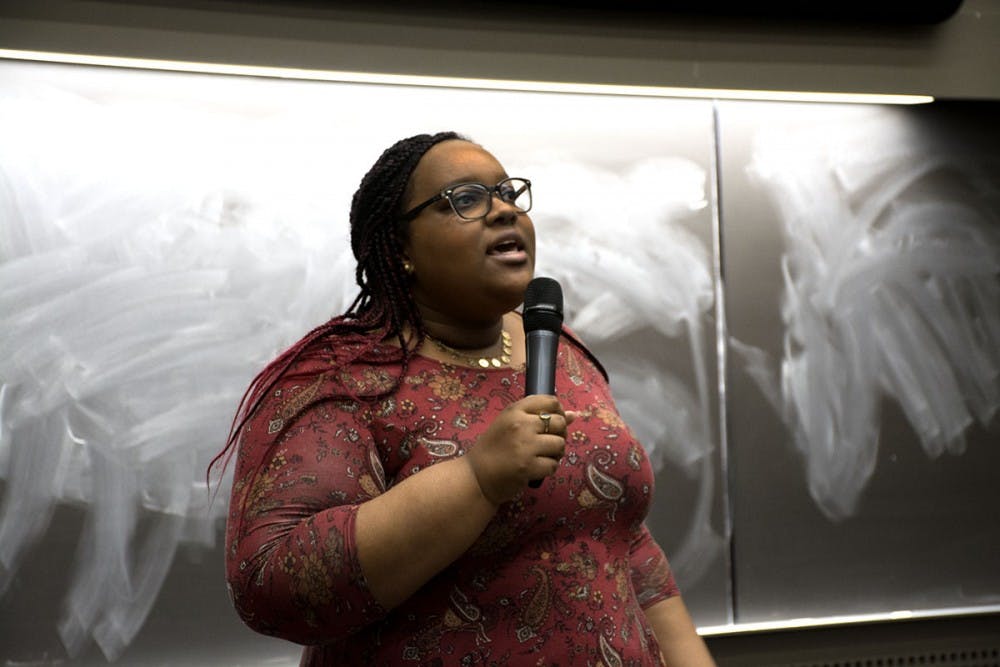An email sent by Alex Smith-Scales, University Board of Elections chair and a fourth-year College student, informed students that their votes for the Honor Undergraduate Arts & Sciences representative were “reset” due to a “technology error” in the Spring 2019 University-wide elections.
The error on the ballot, which is managed by Big Pulse — an online election software company used by the University Board of Elections — allowed students to vote for and rank only two candidates out of the six running. The Honor Undergraduate Arts and Sciences representative position is filled by five individuals, and it was intended for a voter to be able to vote for five individuals.
The number of students whose votes had to be reset was “significant,” according to Smith-Scales. Although the exact number of reset votes was unclear, Smith-Scales said it was around 600. Students whose votes were reset had to vote again for it to count. The final number of votes for the Honor representative position in question reached 1,341.
“Unfortunately, it took awhile for the issue to be resolved, which is why when we reopened the poll — it was for all voters that had voted before 2:15 pm,” Smith-Scales said in an email to The Cavalier Daily.
Yet, Smith-Scales added that the error was quickly detected.
“I believe I received about ten communications in the first hour that the ballot was open notifying me of the technology error on our end,” Smith-Scales said in an email.
Omar Metwally, a second-year College of Arts and Sciences student who unsuccessfully ran for the Honor Undergraduate Arts & Sciences representative position, said he quickly reached out to the University Board of Elections identifying the issue.
“I notified UBE about 10 [minutes] after the ballot came out about the honor issue,” Metwally said in an email statement to The Cavalier Daily.
Metwally says he did not get a response from the University Board of Elections.
Christian Smith, a first-year College of Arts and Sciences student who was elected for the Honor Undergraduate Arts & Sciences representative position, found out about the error from the email when the rest of the student body was informed.
“I was shocked and anxious,” Smith said in an email statement to The Cavalier Daily. “I had to put trust in the voters to re-vote as these elections are very important in my opinion since they are systems of student governance that will have an effect on you, someone you know, and your life at UVA.”
Despite the quick identification of the issue, the error was not as quickly resolved. According to Smith-Scales, Big Pulse — the online voting software used to conduct Student Council Elections — needed to be contacted in order to correct the error.
Big Pulse was contacted at 11:00 a.m. Tuesday — an hour after elections began — and the poll was fixed by 2:15 p.m., Smith-Scales said. All votes cast before that time did not count.
Despite around 600 votes being reset, Smith-Scales does not believe that turnout for this specific election was affected.
“I believe that low voter turnout was due to a number of external issues, but I do not think that this was one of them,” Smith-Scales said.
According to data from the University Board of Elections, voter turnout for the Honor Undergraduate Arts and Sciences representative race was 11.9 percent, down from last year when voter turnout was 19.7 percent. Voter turnout decreased in almost every race this year.
Metwally described a number of external issues that he felt might have led to the low voter turnout.
“When UBE sent out the voter email … it looked like a phishing scam and ended up in many [students’] spam mailboxes,” Metwally said.
The email students first received came from an email address associated with Big Pulse — the provider for the online voting software used by the University Board of Elections — rather than the University Board of Elections email address that was used to announce last year’s election.
Smith-Scales acknowledged that messages sent out by the University Board of Elections might have been seen as suspicious.
“There were three voting reminders sent out this year but people either ignored them or thought they were phishing,” Smith-Scales said. “There was nothing we could do to control this.”
Metwally said the University Board of Elections could have done more outreach to increase voter turnout, such as work with student organizations like the University Judiciary Committee to help spread awareness of voting.
According to Smith-Scales, the University Board of Elections did choose not to work with either Honor or the University Judiciary Committee to run polling stations because the polling stations were “not beneficial in increasing voter turnout” in previous years.
Smith-Scales stated that her personal belief was that voter turnout was low because of increased apathy towards student government over the past few years.
“UBE tried to circumvent this but our efforts were not successful,” Smith-Scales said.







